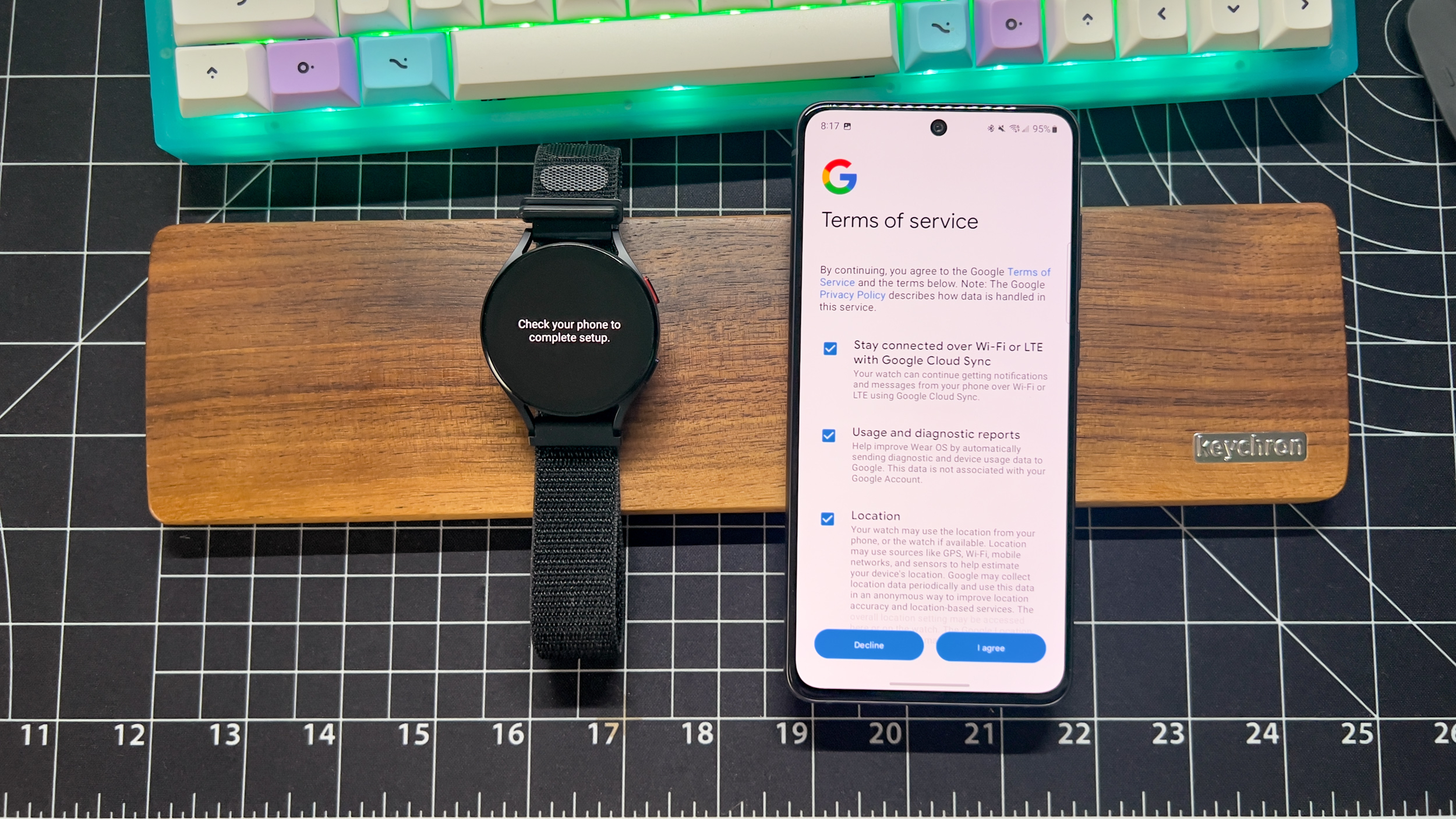Overreacting is easy, but it will never fix any real problems
Never expect a company to make things easy.

Get the latest news from Android Central, your trusted companion in the world of Android
You are now subscribed
Your newsletter sign-up was successful
We've had another fun week seeing how companies want to access and process our data for their benefit. Everyone is up in arms about new terms and conditions from Adobe and Meta that tell us how they plan to use our photos to bolster their AI. Predictably, we all hate it.
Equally predictable was the freakout everyone was having that wasn't really necessary. You can opt out of both, and at least we finally know what both companies plan to do—they were always going to try to use our publically shared data for AI training. Telling us in writing is a good thing.

One of the web's longest-running tech columns, Android & Chill is your Saturday discussion of Android, Google, and all things tech.
I'm not saying that either company does any of this the right way. Adobe and Meta have (or will, Meta's new policy won't go into effect until June 26) automatically opted us in, making the option to say no difficult to find. That's really crappy behavior, but we see it from every tech company almost every time.
For Adobe, visit your account's privacy settings, find the Content Analysis section, and toggle the switch off.
For Meta, the new privacy policy will have a "Right to object" link that allows you to fill out a form to opt out. You might have seen people with early access sharing this, and you'll have the same option once it goes live.
So yeah, both companies hide things, and it's not an accident. They want your data on Instagram and things you share with Creative Cloud to make their jobs a little easier and to make a little more money.
Here's the thing—it seems like nobody looked into it before they freaked out. If you're mad at the way a company automatically enrolls you into its new level of bullshit or how it hides the way you can say no, right on. But going off about how you're being forced to do something is, well, it's just silly. Wrong and silly. Nobody hates these giant tech company monsters more than I do, and I'm not defending them. I simply want the collective rage to focus on the right things.
Get the latest news from Android Central, your trusted companion in the world of Android
I know how to fix it, and you'll hate my idea: how about reading things before you automatically say yes?

Reading would have stopped the "Adobe is stealing all my company NDA work!!!!!1111!!!!!!" nonsense in its tracks. Once Instagram uses the new updated Meta policies, we will see more of the same because people aren't reading what it says.
I consider myself fairly smart and tech-savvy, but I also think most people are equally smart and tech-savvy if they want to be. The big difference is that I know not to trust these tech companies.
Tech companies do everything they can get away with to make sure any agreement is in their favor. When you buy a new phone and sign in to all your stuff, you are just a faceless number who will be treated like a dairy cow and milked for everything a company can get. I realize how cynical this sounds, but I've also realized that it's true. Fifteen years of experience investigating and writing about these companies has taught me not to trust any of them.
It's fine to use and even enjoy the products and services they have to offer, and I do. You should too. But you should never trust them to do anything except find ways to make more money from you and your data.
You need to read everything they tell you, and that includes following the countless links to other obscure documents that explain what it all means. If everyone did that, nobody would think canceling an Adobe subscription is the only way to keep your files out of their greedy claws. You should cancel because it's too expensive and there are alternatives out there, not because you don't understand a thing you didn't read, but because someone said you should hate it.

This goes double for people like me. If you write about tech and didn't lead a story about Adobe's new policy with a way to opt out, you're bad at your job. Do better. Investigate so you can tell people how to stop what's happening, then explain why the policy exists and why it's bad. You might not get as many social rage-bait shares, but maybe you'll help someone instead.
Companies have entire teams to figure out how to tip the scales in their favor and hide what's happening in boring documents filled with quasi-legal words in the hopes that nobody will read or understand them. We don't. We can only do our best to understand what's happening, ask questions when we're unsure, and never agree because we feel overwhelmed.
That's what they want you to do, and no amount of complaining on social media will change it.

Jerry is an amateur woodworker and struggling shade tree mechanic. There's nothing he can't take apart, but many things he can't reassemble. You'll find him writing and speaking his loud opinion on Android Central and occasionally on Threads.
You must confirm your public display name before commenting
Please logout and then login again, you will then be prompted to enter your display name.
